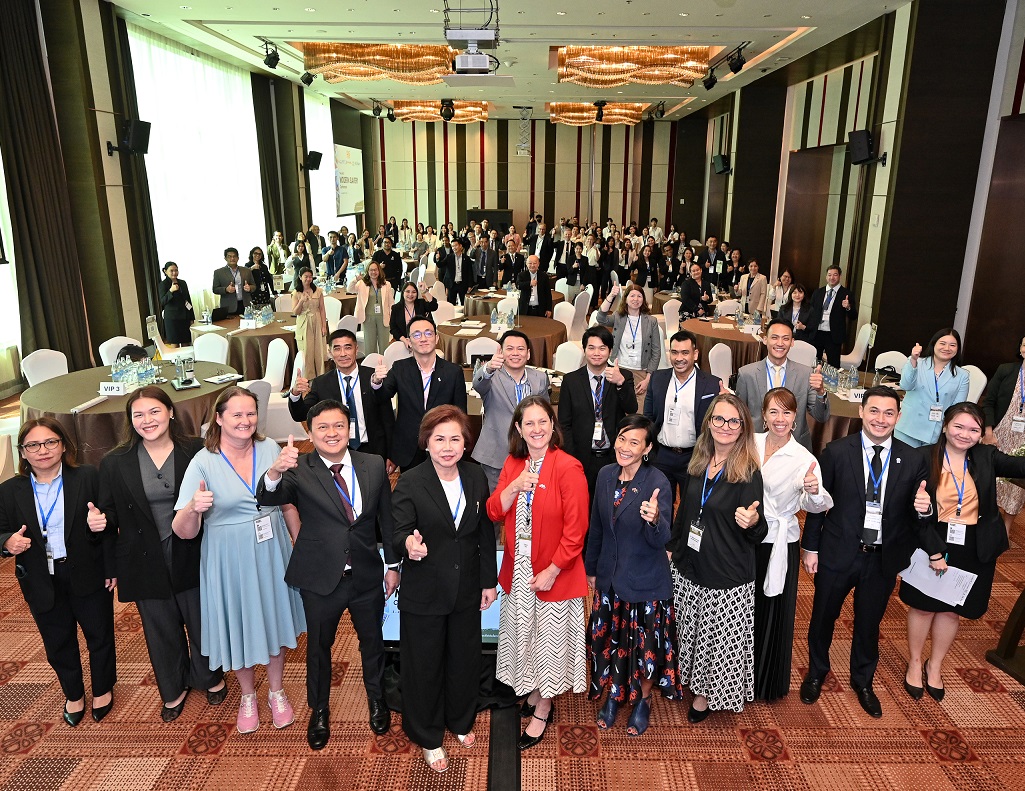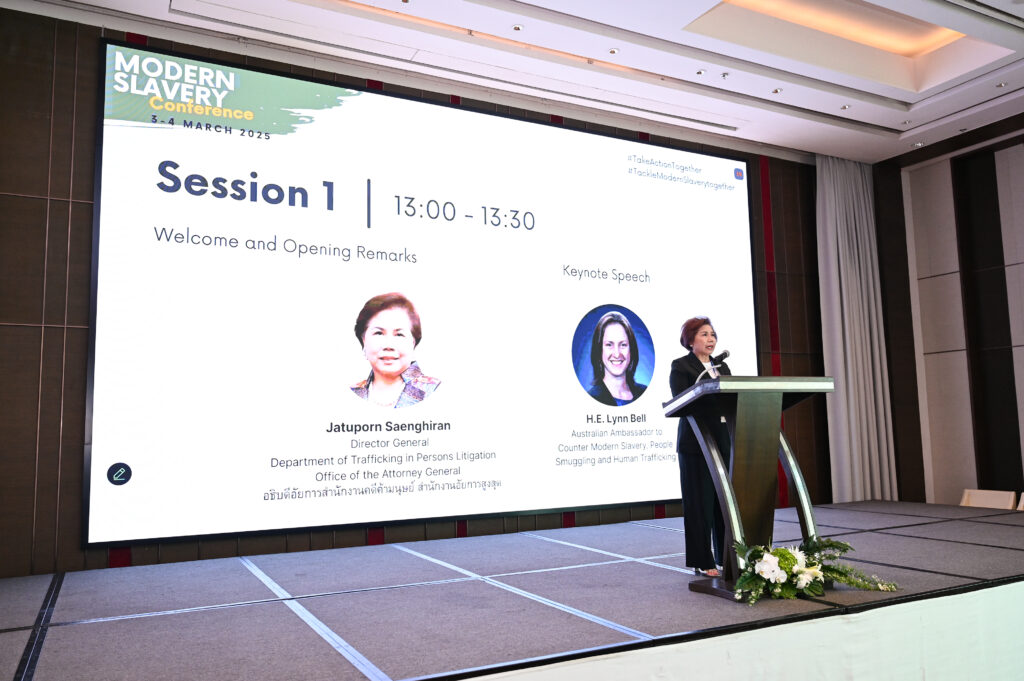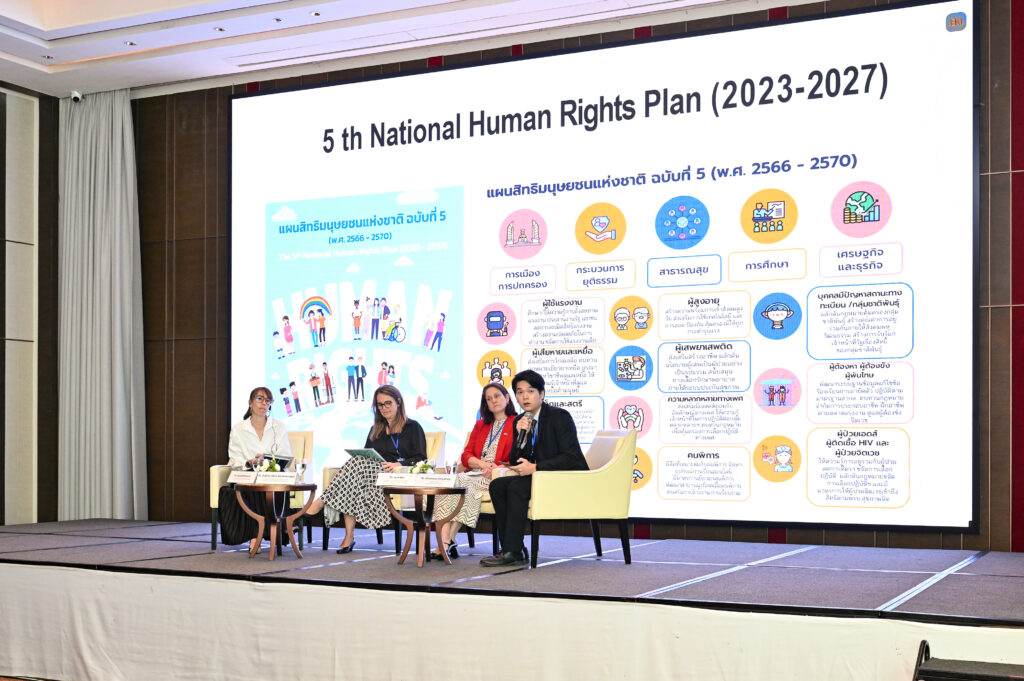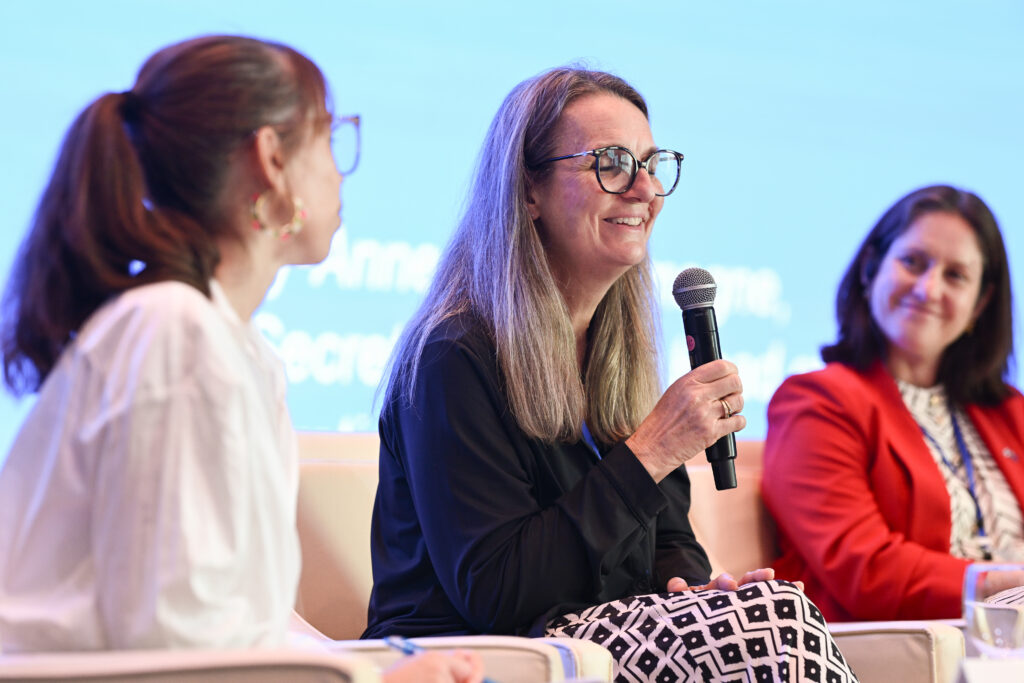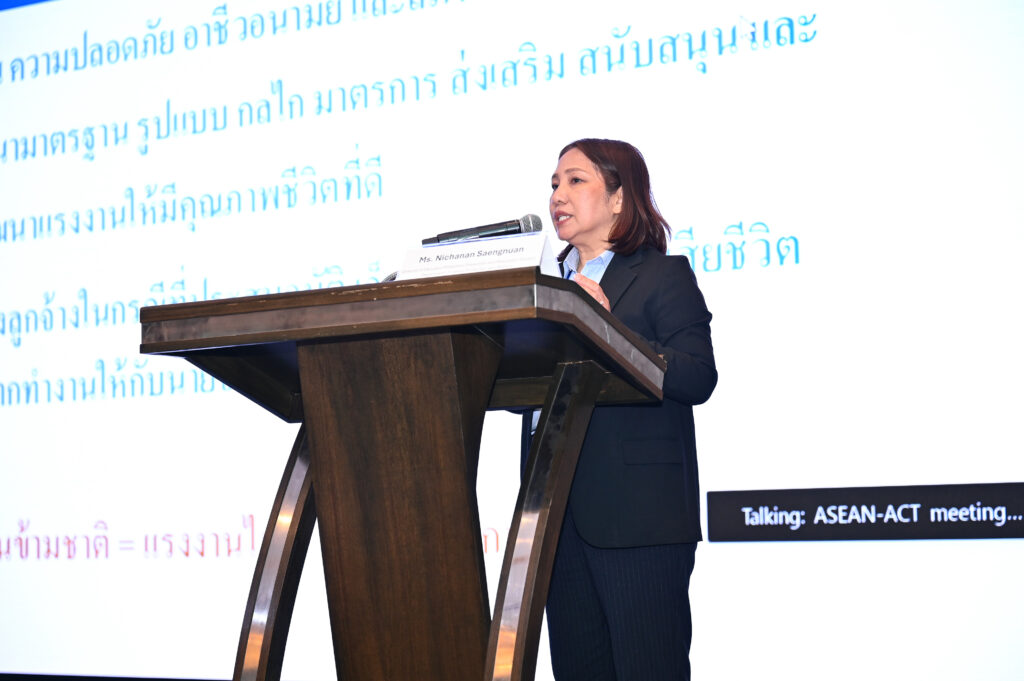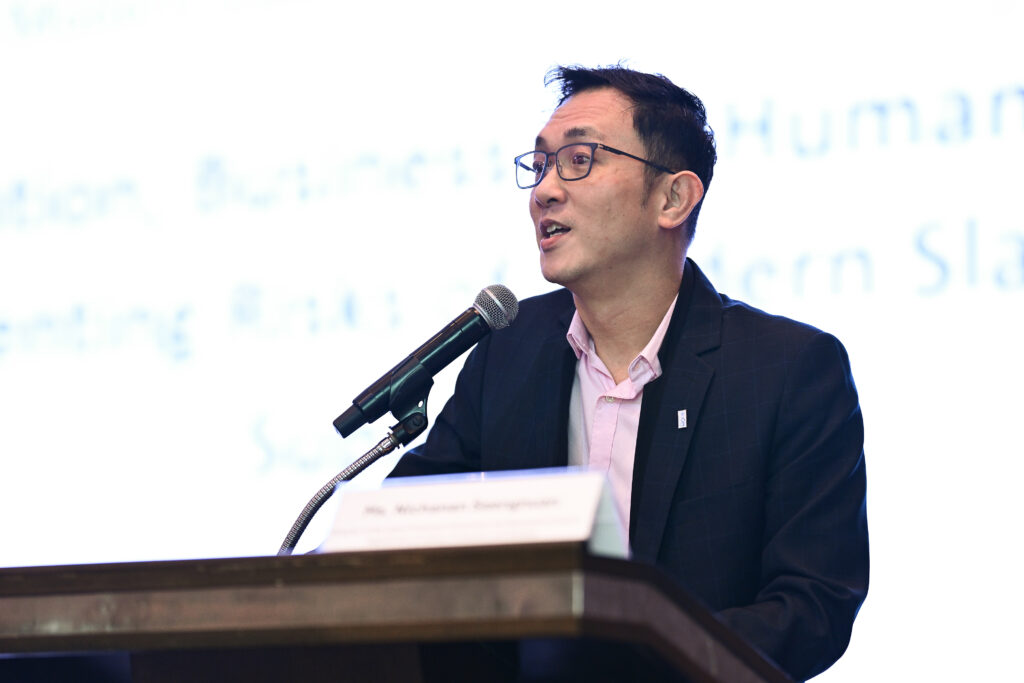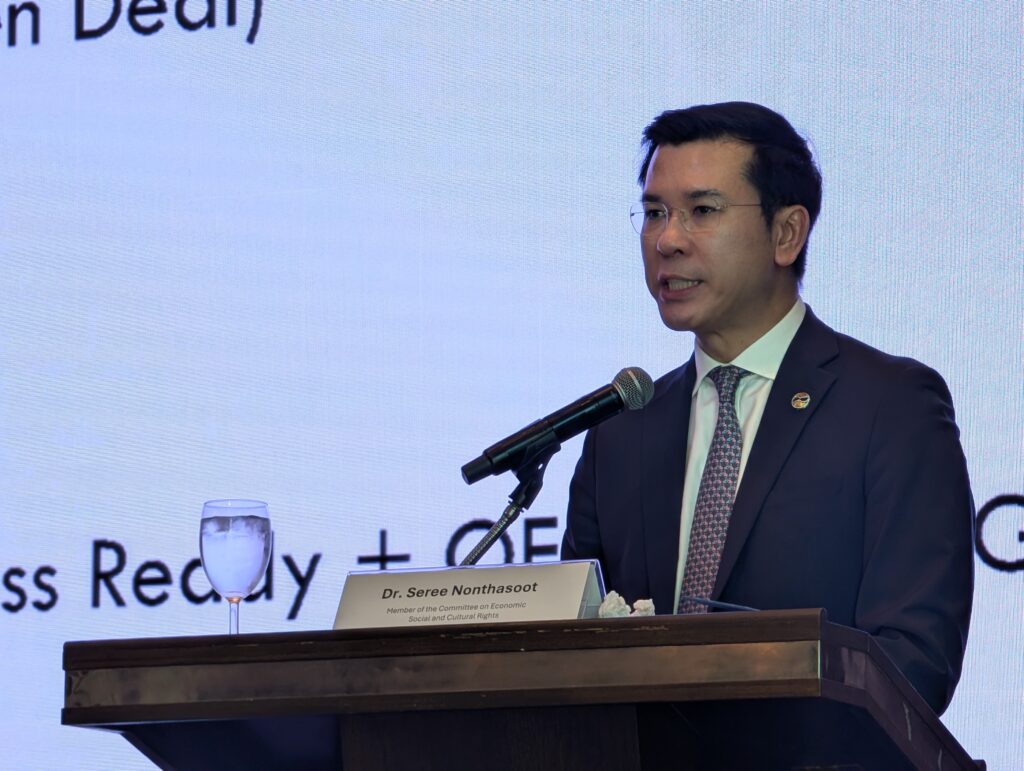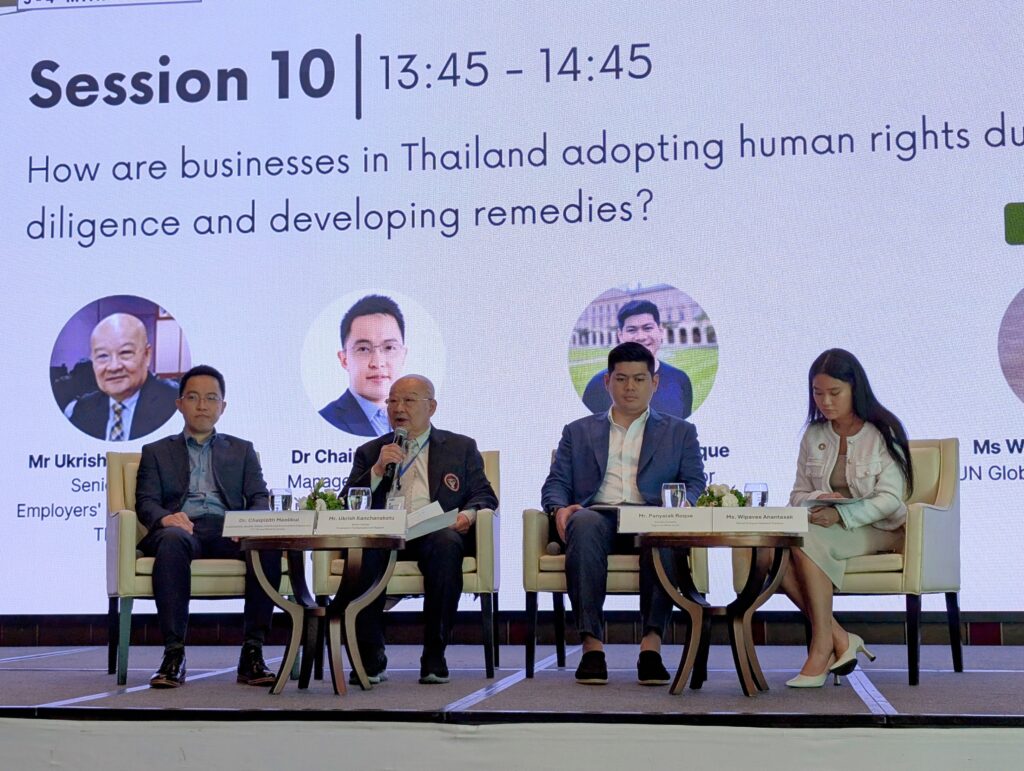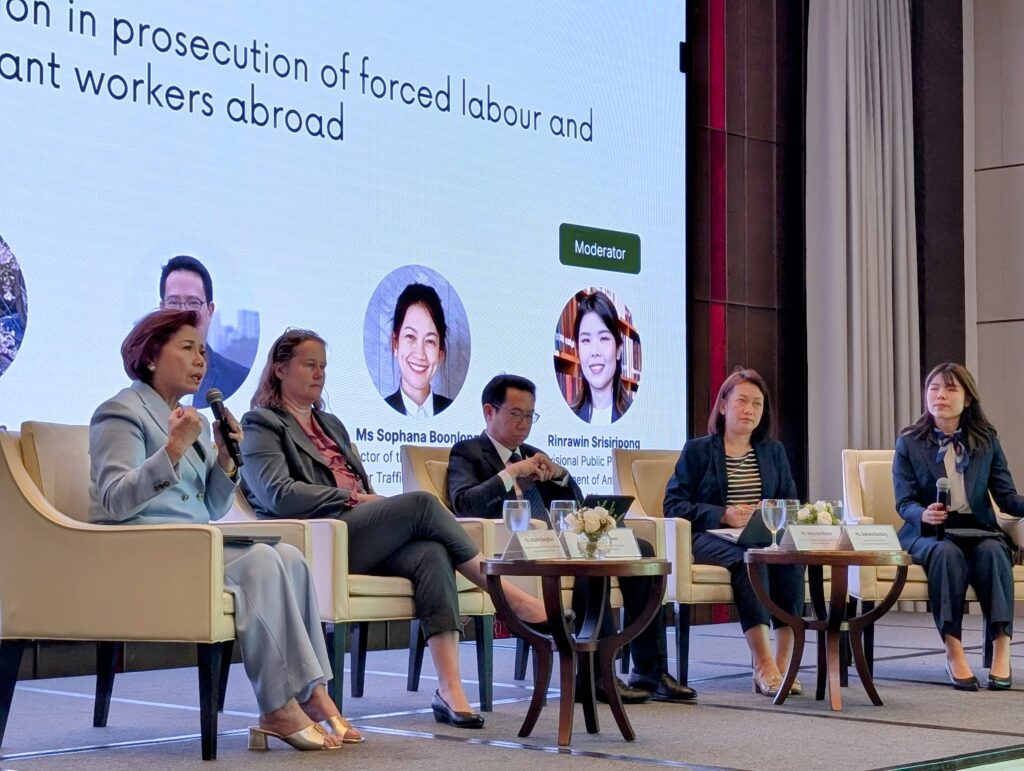Modern slavery is a widespread problem that affects all countries and many industries – whether in plantations, factories, fishing boats, construction sites, or even people’s homes. According to the International Labour Organisation, 27.6 million people are in forced labour worldwide, 63% of whom are working in the private sector.

Bangkok, Thailand – The Australian Government funded ASEAN-Australia Counter Trafficking program supported Thailand’s Office of Attorney General and partners to host its second Modern Slavery Conference (3-4 March 2025) to discuss the vulnerabilities of workers to modern slavery and how these can be addressed through multi-stakeholder partnerships.
Building on the theme of last year’s conference #TakeActionTogether, close to 100 participants from government, business, civil society, international organisations and a survivor of labour exploitation provided insights on the structural drivers of modern slavery and how these can be reduced, including through developments in human rights due diligence in Thailand.
Positive updates shared by key countries and regions
Experts shared positive developments from different countries and regions, including from Thailand, where the Ministry of Justice detailed its plans to develop a new human rights due diligence law in the coming years. A first in the region, this law will require businesses to respect and protect human rights in their operations and supply chains - over time leveling the playing field between Thai markets and those in the EU, Australia and the UK.
Australia’s Ambassador to Counter Modern Slavery, People Smuggling and Human Trafficking shared Australia’s efforts to tackle modern slavery domestically and internationally through the Modern Slavery Act 2018 and strong criminal penalties, including up to 25 years in jail, to deter and punish modern slavery offences.
The European Union to Thailand elaborated on the new Corporate Social Due Diligence (CSDD) directive, which will require large companies to identify, prevent, mitigate and account for human rights and environmental impacts in their operations and supply chains. Dr Audrey-Anne Rochelamagne, European Union to Thailand believes that while there may be clear challenges, there are also many opportunities for the Thai industry:
"I think the most obvious benefits for a company complying with these legal requirements is the continued access to one of the world's most lucrative markets. So, I think there is strong incentive for all of us by taking proactive measures to develop comprehensive legislation and establish strong regulatory framework, build capacity, foster collaboration, and provide incentive. Thailand can position itself as a leader in ethical business practices."
Vulnerability of migrant workers
Migrant workers are among the most vulnerable to modern slavery, particularly those who migrate irregularly and pay high fees to a recruitment agency or broker. It is for this reason that strengthening migration governance is understood as key to reducing the vulnerability of migrant workers to labour abuse and exploitation – this includes providing cost-effective, accessible, safe and regular channels for labour migration.
The exploitation of Thai workers overseas was highlighted through a panel focused on berry pickers in Nordic countries. Substantial numbers of Thai nationals migrate for seasonal work in Finland, Sweden and Norway each year, and while some have positive experiences many workers have experienced hardship, abuse and even labour exploitation. These experiences have helped to inform policy developments in Finland and Sweden to reduce risk in this sector as a result. In cases where trafficking for labour exploitation have occurred, Finish and Thai law enforcement have been cooperating to bring perpetrators to justice and compensate victims for lost wages and other damages.
In a panel comprising a Cambodian survivor who experienced labour trafficking, governments were reminded of their fundamental role in raising awareness about fake jobs and deceptive recruitment, as well as the broader risks associated with migrating overseas for work. The panel confirmed that hearing from survivors and the NGOs that support them is fundamental in informing effective and inclusive responses to modern slavery.
Thailand narrowing the gap
Dr Pia Oberoi, from the UN Office of the High Commissioner for Human Rights, set the scene for discussions on the role of the UN Guiding Principles of Business and Human Rights in reducing modern slavery, highlighting that states need to look holistically at the justice system and other policy setting that may directly or indirectly contribute to the risk of rights violations and prevent effective access to remedy.
Dr Seree Nonthasoot, Member of the United Nations Committee on Economic, Social and Cultural Rights, outlined progress made in Thailand towards implementing the guiding principles on business and human rights as part of a broader shift towards responsible business practices. He highlighted One Report, a system which all publicly listed companies in Thailand are now required to contribute to, which combines financial reporting with data on environmental and social impact. This system has been recognising globally as significant progress in making human rights due diligence concrete. Dr Seree cautioned that integrating human rights due diligence remains a challenge for small and medium enterprises (SMEs) with a need for more support and incentives to nudge them towards better practice:
"We need to be more specific and help our SMEs which can constitute about 90% of our economy."
Thai businesses, including Mars Petcare (Thailand) and PTT Oil, shared how they were adopting human rights due diligence into operations and supply chains, including using technology to track and monitor supply chains, and assess risks and implement corrective actions. The Employer’s Confederation of Thailand emphasised the need for buyers to engage with their suppliers to ensure that labour standards are upheld, including conducting audits and providing support to suppliers to improve their practices.
Contributions from the Securities Exchange Commission (SEC) and Office of SME Promotion (OSMEP) further illustrated how Thailand is taking a systematic approach to promoting responsible business practices throughout the economy. As Thailand progresses in this way, it is set to become a regional leader in ethical business practice.
Thailand’s second modern slavery conference continued to foster new partnerships across sectors, paving the way for collective action to combat modern slavery and progress human rights in Thailand, the region and globally.
---
Thailand’s 2025 Modern Slavery Conference organising partners include: International Justice Mission, A21, UN Global Compact Network Thailand, Business & Human Rights Academy, IOM and the Australian Government.
